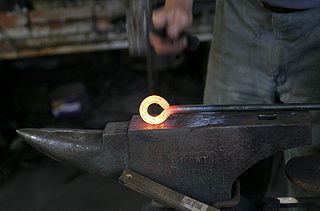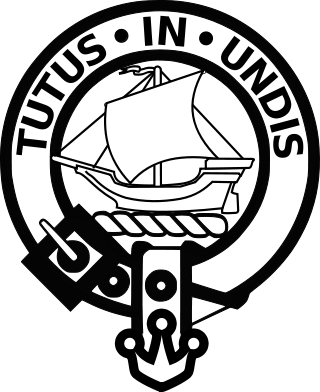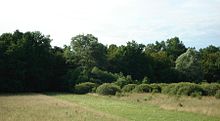Geddes is a surname of English and Scottish origin. In Scotland and northern Ireland the name may be derived from the place-name Geddes in Nairn, Scotland. The Dictionary of American Family Names claims that the surname is more likely a patronymic name derived from the name Geddie, itself perhaps an altered form of MacAdam. In this way, the letter G represents the Scottish Gaelic mac "son of" and Eddie is a variant of Adam. Geddie may also be a nickname meaning "greedy", derived from gedd meaning "pike", this could also refer to a voracious eater. The earliest written record of the surname Geddes is of William Ged, from Shropshire, England, recorded within the Pipe Rolls in the year 1230. The surname Geddes can be represented in Scottish Gaelic as Geadasach and Geadais.

Akins is a Scottish surname and northern Irish family name.
Neil is a masculine name of Irish origin. The name is an anglicisation of the Irish Niall which is of disputed derivation. The Irish name may be derived from words meaning "cloud", "passionate", "victory", "honour" or "champion". As a surname, Neil is traced back to Niall of the Nine Hostages who was an Irish king and eponymous ancestor of the Uí Néill and MacNeil kindred. Most authorities cite the meaning of Neil in the context of a surname as meaning "champion".

Smith is an occupational surname originating in England. It is the most prevalent surname in the United Kingdom, the United States, Australia, Canada, and New Zealand, and the fifth most common surname in the Republic of Ireland. In the United States, the surname Smith is particularly prevalent among those of English, Scottish, and Irish descent, but is also a common surname among African-Americans, which can be attributed either to African slaves having been given the surname of their masters, or to being an occupational name, as some southern African-Americans took this surname to reflect their or their father's trade. 2,442,977 Americans shared the surname Smith at the time of the 2010 census, and more than 500,000 people shared it in the United Kingdom as of 2006. At the turn of the 20th century, the surname was sufficiently prevalent in England to have prompted the statement: "Common to every village in England, north, south, east, and west"; and sufficiently common on the (European) continent to be "common in most countries of Europe".
Wilson is an English, Scottish, and Northern Irish surname, common in the English-speaking world, with several distinct origins. The name is derived from a patronymic form of Will, a popular medieval name. The medieval Will is derived from any of several names containing Old Norse or the first Germanic element wil, meaning "desire". Possibly the most common of these names was William, derived from elements wil and helm, meaning "desire" and "helmet", "protection". The surname Wilson is first recorded in England as Willeson in 1324 and in Scotland as Wulson in 1405.
Jenkins is a surname that originated in Cornwall, but came to be popular in southern Wales. The name "Jenkin" originally meant "little John" or "son of John". The "kin" portion is of Dutch or Danish origin (-kijn), which then gained a certain popularity in England.
McCawley and MacCawley are surnames in the English language. The names are Anglicisations of several Gaelic-language surnames. There are several etymological origins for the names: all of which originated as patronyms in several Gaelic languages—Irish and Scottish Gaelic. Although the English-language surnames are ultimately derived from Gaelic patronyms, the English-language surnames, and the modern Gaelic-language forms do not refer to the actual name of the bearer's father or grandfather. The surnames are not very common.

Clan Wood is a Lowland Scottish clan from North Esk, Largo Bay and Angus in Scotland.
Ferrer is a common surname in Catalan, ranked 35th in Catalonia and was listed as 1,648th most common surname in the world.
Cawley is a surname in the English language. There are several different origins of the surname. In some cases the surnames are derived from any of numerous place names in England. In other cases the surnames are derived from any of several Gaelic language surnames.
Mayor is an English and Spanish-language surname with several etymological origins. The English-language name is sometimes a variant spelling of Mayer, and thus derived from the Middle English and Old French mair, maire ; this surname originated from the title of a mayor. The surname Mayor can also be derived from a nickname, derived from the Spanish mayor, meaning "older", borne by the elder of two individuals with the same name. Another origin of the surname is from an occupational name, derived from the Spanish major, meaning "governor", "chief". The surname can also be a Catalan variant of the surname Major, derived from major, meaning "greater", used to denote an elder son of a particular family or an important person. The surname Mayor can also be derived from the Yiddish personal name Meyer, which is derived from the Hebrew language Meir, which in turn means "enlightener".
Poland is an Irish surname that has been Anglicised from MacPoìlin. Outside of Ireland, it can be of English and German origin.
Scottish surnames are surnames currently found in Scotland, or surnames that have a historical connection with the country.

Bain or Bains is an English, French, Punjabi (Jatt), and Scottish surname. It may also be a variant form of a German surname.

Raven is a given name in the English language. While it may be given to boys and girls, it is more frequently a feminine name. In the United States of America the name has ranked among the top 1,000 names given to baby girls since 1977.
McCauley and MacCauley are surnames in the English language. There are several etymologically unrelated origins for the names: all of which originated as patronyms in several Gaelic languages—Irish and Scottish Gaelic. Although the English-language surnames are ultimately derived from Gaelic patronyms, the English-language surnames, and the modern Gaelic-language forms do not refer to the actual name of the bearer's father. The Irish McCauley's originated in county Westmeath in the Irish Midlands, province of Leinster, where at one time the area which is now Ballyloughnoe was once called "McGawley's Country, the scottish McCauleys are partly descended from the Irish McCauleys as the Irish moved to Scotland offered land by Robert the bruce" The English-language surnames are generally popular in certain parts of Ireland—both in the Republic of Ireland and Northern Ireland. According to census records in the United States of America, "MCCAULEY" (McCauley) is a somewhat common surname, although "MACCAULEY" (MacCauley) is extremely rare.
Corrie is a surname in the English language. The name has several different etymological origins. The name is found in numbers in the north of Ireland. The surname has been borne by a noted Scottish family, that was originally seated in what is today the civil parish of Hutton and Corrie.
Macaulay, McAuley, MacAuley, and Macauley are Scottish and Irish surnames. There are several etymological origins for the names: all of which originated as patronyms in Gaelic languages—Irish and Scottish Gaelic. Although these English-language (Anglicized) forms of the surnames are ultimately derived from Gaelic patronyms, they do not refer to the actual name of the bearer's father. The surname is quite common in Ireland, particularly in Ulster.
Macaulay, Macauley, MacAulay, McAulay and McAuley are surnames of Irish origin originating in Westmeath, Leinster anglicized from Irish Mac Amhalghaidh in the English language. The surname is also found in Scotland of distinct, but related origins due to Irish settling in Scotland. Some of the Irish Macaulay's settled in Scotland during the reign of Robert the Bruce. There are several etymological origins for the names: all of which originated as patronyms in several Gaelic languages—Irish and Scottish Gaelic. Although the English-language surnames are ultimately derived from Gaelic patronyms, the English-language surnames, and the modern Gaelic-language forms do not refer to the actual name of the bearer's father.
Cubbon is a rare patronymic manx gaelic (Gaelg) surname, of exclusive origin from the Isle of Man.





